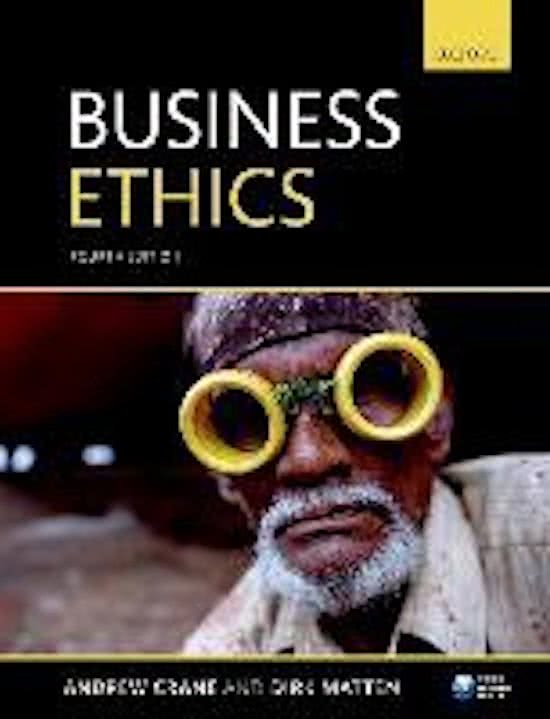Notizen
ESCP Business School: CSR & Business Ethics (TBC), Class notes (incl. Summaries & Wrap-Up class), ISBN: 9780199697311
- Kurs
- Hochschule
- Book
These class notes were taken in 2018 in the course called "Corporate Social Responsibility & Business Ethics" a Third Year Bachelor in Management course at ESCP Europe. The bundle of documents includes all sessions numbered from 1 to 10, including summaries and Wrap-Up classes. Each document includ...
[ Mehr anzeigen ]





